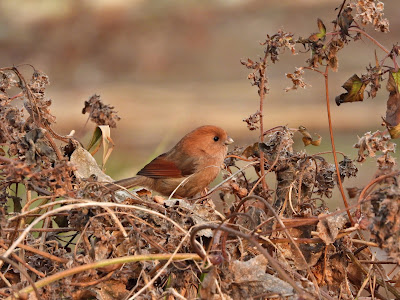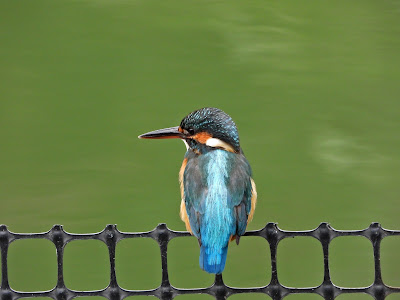Sun Spurge (Euphorbia helioscopia, 泽漆).
Growing by the Xiang river, in recently turned up ground. A toxic plant with a long history of use in traditional Chinese medicine. Recent studies have attested to its anticancer and antibacterial properties, confirming what has been long known.
Wednesday, 31 January 2024
Sun Spurge
The Oniric Domain
Confined from early childhood in a world that almost everything he ever hears or reads will tell him is the one and only real world and that, as almost no one, on the contrary, will point to him, is a prison, man—l’homme moyen sensuel—bound hand and foot not only by those economic chains of whose existence he is becoming every more and more aware, but also by chains of second-hand and second-rate ideas, the preconceptions and prejudices that help to bind together the system known (ironically, as some think) by the name of ‘civilisation’, is for ever barred except in sleep from that other plane of existence where stones fall upwards and the sun shines by night, if it chooses, and where even the trees talk freely with the statues that have come down forever from their pedestals—a world to which entrance has generally been supposed, up till now, to be the sole privilege of poets and other madmen. For it is undeniably true that the oniric domain is still regarded in very much the same way as was the erotic domain during the Victorian era. That the dream is useless, as escape from reality, the dreamer a self-indulgent and lazy person, is the accepted view of an overwhelming majority. How, then, can man reconcile himself to the fact that he spends more than a third of his life on earth in sleep, and that he spends the whole time of his sleeping in a world that his conscious mind so despises?David Gascoyne, A Short Survey of Surrealism (London: Enitharmon Press, 2003; 1935), p. 23.
Tuesday, 30 January 2024
Changeable Rose-Mallow Seedpod
Today was warm but wet: some plants seem ready to start spring others seem to be expecting more winter yet. The changeable rose-mallow (hibiscus mutabilis, 木芙蓉) seedpods along the river have not yet shown any signs of opening: their vote is for more winter.
Accidents
In the course of my reading, I have come to the conclusion that the random, the accidental, have a strong attraction for many writers because they simplify delimiting. Why is there something rather than nothing? Accident.Marilynne Robinson, Absence of Mind: The Dispelling of Inwardness from the Modern Myth of the Self (New Haven & London: Yale University Press, 2010), p. 71.
Monday, 29 January 2024
Pied Kingfisher
Pied Kingfisher (Ceryle rudis, 斑鱼狗).
There are three pied kingfishers which I see not infrequently. Sometimes they stray over to the Xiang but usually they stay within their territory in the Meixi river (really a stream). Recently they have been disturbed by construction and are further afield. This one spent about thirty minutes surveying the lakes in Wangling park before heading elsewhere.
To English
The general trend of translation over the last century and more has been away from smoothness and towards authenticity, away from a reorganising interpretativeness which aims for the flow of English prose, towards a close-reading fidelity – enjoy those tannins! – which seeks to echo the original language. We no longer use the verb ‘to English’ – it sounds proprietorial, even imperialist – but when Flaubert was first being translated it was still in use: thus the first London and New York edition of Salammbô – published in 1886, the same year as Marx Aveling’s Madame Bovary – is described on its title page as having been ‘Englished’ by (wait for it) ‘M. French Sheldon’.Julian Barnes, ‘Translating Madame Bovary’, in Through the Window (London: Vintage, 2012), pp. 146-74 (p. 153).
Sunday, 28 January 2024
Chinese Holly
Chinese Holly (Ilex cornuta, 枸骨).
I could not find any holly berries at Christmas, but we finally found some deep within Yuelu mountain.
Feast of Thomas Aquinas
Thomas Aquinas (1225-1274), Letter to John on How To Study:
John, dearest to me in Christ, since you sought my guidance on how you should study in order to attain the treasure that is knowledge, I offer you this advice, that you should opt to wade in through the small streams instead of hastily plunging yourself into the sea, as challenging subjects ought to be approached by means of easier ones. Therefore, this is my admonition and your lesson: I bid you be slow to speak and hesitant to approach the common room. Cherish purity of conscience. Always make time for prayer. Frequently elect to spend time in your own cell if you wish to be led into the wine-cellar. Comport yourself amiably to everyone. Don’t look for hidden ulterior motives in the deeds of others. Don’t be overly familiar with anyone, because too much familiarity breeds contempt and affords lost opportunities for study. Do not busy yourself with the chatter and goings-on of worldly people. And, above all, flee from distracting conversation. Do not neglect to follow in the footsteps of saints and wholesome people. Don’t bother too much about who said what but commit whatever is good to memory. Take care to understand fully what you read and hear. Double-check what is doubtful. And busy yourself with whatever you will have placed in your mental bookcase as one anxious to to fill a vessel to the brim. Seek not the things that are too high for thee. By following those footpaths for as long as you live, you will nourish and grow the branches and fruits useful in the vineyard of the Lord of Hosts. If you zealously follow these precepts, you will be able to attain whatever you aspire towards.Notes:
Quia quaesisti a me, in Christo mihi carissime Ioannes, qualiter te studere oporteat in thesauro scientiae acquirendo, tale a me tibi traditur consilium: ut per rivulos, non statim in mare, eligas introire, quia per faciliora ad difficiliora oportet devenire. Haec est ergo monitio mea et instructio tua. Tardiloquum te esse iubeo et tarde ad locutorium accedentem; conscientiae puritatem amplectere. Orationi vacare non desinas; cellam frequenter diligas si vis in cellam vinariam introduci. Omnibus te amabilem exhibe; nihil quaere penitus de factis aliorum; nemini te multum familiarem ostendas, quia nimia familiaritas parit contemptum et subtractionis a studio materiam subministrat; de verbis et factis saecularium nullatenus te intromittas; discursus super omnia fugias; sanctorum et bonorum imitari vestigia non omittas; non respicias a quo audias, sed quidquid boni dicatur, memoriae recommenda; ea quae legis et audis, fac ut intelligas; de dubiis te certifica; et quidquid poteris in armariolo mentis reponere satage, sicut cupiens vas implere; altiora te ne quaesieris. Illa sequens vestigia, frondes et fructus in vinea domini Sabaoth utiles, quandiu vitam habueris, proferes et produces. Haec si sectatus fueris, ad id attingere poteris, quod affectas.
Thomas Aquinas, ‘Epistola de Modo Studendi’, in Opuscula theologica, ed. by Raimondo A. Verardo (Rome: Marietti, 1954), I, p. 451. My translation.
'altiora te ne quaesieris' (Ecclesiasticus 3:22)
Saturday, 27 January 2024
Good Books
A man ought not to be ashamed of reading a good book because it is simple and popular, and he ought not to condone the faults of a bad book because it is simple and popular. He should be able to say (altering the names to suit his own judgement), ‘I read Buchan and Eliot for the same reason, because I think them good; I leave Edgar Wallace and Ezra Pound unread for the same reason, because I think them bad.’ It is by no means for the protection of bad books that I wish the distinction of high- and lowbrow abolished. That distinction itself protects bad books. As it robs excellent A books of deserved praise, it teaches its victims to tolerate bad A books.C.S. Lewis, “High and Low Brow”, Essay Collection and Other Short Pieces, ed. by Lesley Walmsley (London: HarperCollins, 2000), pp. 421-33 (p. 432). This essay was first published 1939.
Friday, 26 January 2024
Plain Prinia with an Irritating Grasshopper
By the Xiang river, a plain prinia (prinia inornata, 纯色山鹪莺) caught irritating grasshopper (euconocephalus nasutus, 鼻优草螽). Not a paltry meal: the prinia exerting itself for some time tossing the grasshopper and pecking at it in order to reduce it to edible portions.
The Destruction of Old Buildings
Bernard Berenson, The Passionate Sightseer, from the diaries 1947-1956, (London: Thames & Hudson, 1960), p. 27:
I understand why I dislike innovation that comports removal or out-and-out destruction of buildings that I have got used to, of streets to which I had not only visually but muscularly got habituated. But why should I be distressed that the future will not miss them? Perhaps it is that we attach our own survival (in a measure at least) to things looking the way we have known them and that we die again with their disappearance and their replacement with other things that our ghosts could not recognize? Ghosts are seldom more than two, or at most three generations back, unless they become spooks as perhaps Nero did for centuries.
Thursday, 25 January 2024
Male Yellow-billed Grosbeak
Yellow-billed Grosbeak (Eophona migratoria, 黑尾蜡嘴雀). Male.
Every winter flocks, large and small, of grosbreaks appear in the forests and especially in the trees by the river and they seldom mingle with other songbirds. They are ravenous devourers of seeds and whatever insects they can find. The males have a black masks and wings while the females are uniformly grey.
Fickle Men
It is the lesser blot, modesty finds,Two Gentlemen of Verona, V.4.107-108.
Women to change their shapes than men their minds.
Wednesday, 24 January 2024
Japanese Quail
The snow by river brought out another rare species: a very shy Japanese quail spent most of its time hidden from view behind mud and snow banks, and it took considerable patience and tolerance for the cold for it to forage openly enough to take a picture.
Life is like the Shadow of a Bird
שְׁלֹמֹה אָמַר (קהלת ו, יב): כִּי מִי יוֹדֵעַ מַה טּוֹב לָאָדָם בַּחַיִּים וְיַעֲשֵׂם כַּצֵּל. בְּאֵיזֶה צֵל, אִם כְּצִלּוֹ שֶׁל כֹּתֶל יֵשׁ בּוֹ מַמָּשׁ, אִם כְּצִלּוֹ שֶׁל דֶּקֶל יֵשׁ בּוֹ מַמָּשׁ, בָּא דָּוִד וּפֵרַשׁ (תהלים קמד, ד): יָמָיו כְּצֵל עוֹבֵר. רַבִּי הוּנָא בְּשֵׁם רַב אַחָא כְּהָדֵין עוֹפָא דְּעָבַר וְטוּלֵיהּ עָבַר עִמֵּיהּ. שְׁמוּאֵל אָמַר כְּצִלָּן שֶׁל דְּבוֹרִים שֶׁאֵין בּוֹ מַמָּשׁ שֶׁל כְּלוּםKohelet Rabbah 1:2 (The Sefaria Midrash Rabbah, 2022)
Solomon said: “For who knows what is good for man in his life, [all the days of his vain life,] that he spends like a shadow” (Ecclesiastes 6:12). What shadow? If it is like the shadow of a wall, it has substance. If it is like the shadow of a palm tree, it has substance. David came and explained: “His days are like a passing shadow” (Psalms 144:4). Rabbi Huna [said] in the name of Rav Aḥa: Like that bird that passes and its shadow passes with it. Shmuel said: Like the shadow of bees that have no substance at all.
Tuesday, 23 January 2024
Siberian Weasel
Siberian Weasel (Mustela sibirica, 黄鼬).
Down by the Xiang river, the snow has revealed much of nature that usually remains hidden. A Siberian weasel made a rare appearance, exploring the piles of dead reeds along the mudflats. The weasel kept its distance from me, sometimes crawling slowly from bank to bank, sometimes standing tall to survey around, and sometimes dashing to exploring new drifts of reeds and snow—and scattering varied flocks of birds from its path.
Originality
T.S. Eliot, After Strange Gods: A Primer of Modern Heresy (London: Faber and Faber, 1934), p. 23:
To assert that a work is ‘original’ should be very modest praise: it should be no more than to say that the work is not patently negligible.
Monday, 22 January 2024
The Innkeeper’s Joke
H.G. Wells had been reading T——’s latest book and I asked him if it was good. He said that there was one joke in it which made it worth the 7s. 6d. It was the counsel of a friend to a feeble man who declined to allow his wife to go and get a child elsewhere—‘Greater love hath no man than this, that a man lay down his wife for his friends.’ It was my joke, which I had told to T—— some years before.John Fothergill, An Innkeeper’s Diary (London: Chatto and Windus, 1934), p. 48.
Snow on Yuelu Mountain
Even in subtropical Hunan it snows sometimes and it did today. We joined a steady stream of hikers climbing Yuelu Mountain against the heavy snow and heavier falling branches: it is beautiful now but will be carnage for the trees.
Sunday, 21 January 2024
Oriental Bittersweet
Oriental Bittersweet (Celastrus orbiculatus, 南蛇藤).
Different parts of this woody vine have been used in traditional Chinese medicine for a long time in the treatment a wide variety of inflammatory and other diseases. It sometimes grows in the shade on Yuelu Mountain but more often in spots where the canopy allows more light. Its bark can grow quite thick and is a distinctive reddish brown though this time of year it is also easy to spot by its crackling red fruit.
Faith and Obedience
Dietrich Bonhoeffer, Nachfolge, ed. by Martin Kuske and Ilse Tödt (Munich: Kaiser, 1989; 1937), p. 56:
Sage nicht: Ich habe den Glauben dazu nicht. Du hast ihn solange nicht, als du in Ungehorsam bleibst, solange du den ersten Schritt nicht tun willst. Sage nicht: Ich habe ja den Glauben, ich brauche den ersten Schritt nicht mehr zu tun. Du hast ihn nicht, solange und weil du den Schritt nicht tun willst, sondern dich im Unglauben unter dem Schein des demütigen Glaubens verstockst. Es ist eine böse Ausflucht, vom mangelnden Gehorsam auf den mangelnden Glauben und vom mangelnden Glauben wieder auf den mangelnden Gehorsam zurückzuverweisen. Es ist der Ungehorsam der „Glaubenden”, dort wo ihr Gehorsam gefordert wird, ihren Unglauben zu bekennen und mit diesem Bekenntnis (Mk. 9,24) Spiel zu treiben. Glaubst du - so tu den ersten Schritt! Er führt zu Jesus Christus. Glaubst du nicht - so tu eben denselben Schritt, er ist dir geboten! Die Frage nach deinem Glauben oder deinem Unglauben ist dir nicht aufgetragen, sondern die Tat des Gehorsams ist dir befohlen und sofort zu tun. In ihr wird die Situation gegeben, in der Glaube möglich wird und wirklich existiert.My translation.
Do not say ‘I do not have faith’. You do not have it so long as you persist in disobedience, so long as you are unwilling to take the first step. Do not say ‘I have faith; I no longer need to take the first step.’ You do have faith as long as you are unwilling to take the step, and remain, under the guise of a humble believer, obdurate in your unbelief. It is a wicked ruse, to go from lack of obedience to lack of faith and from lack of faith back to lack of obedience. It is the disobedience of ‘believers’, when they are asked for their obedience, to confess their unbelief and prevaricate in this confession (Mark 9:24). Do you believe? Then take the first step! It leads to Jesus Christ. Do you not believe? Just the same, take the first step; you are bidden to do so! The question of whether you stand in faith or your unbelief is not put to you, but the act of obedience is commanded to you to perform immediately. When you perform it, the circumstances will arise where faith becomes possible and genuinely exists.
Saturday, 20 January 2024
Long-tailed Shrike Enjoying the Winter Rain
In the traditional Chinese calendar, today is the beginning of the 'major cold' (大寒) solar term. We have had some cold rain and snow is expected soon. Many birds are hiding but local long-tailed shrikes (lanius schach, 棕背伯劳) are often out in the open, heedless of weather.
An Asinine Pun
Paullus a Gisbice (Pavel Litoměřický z Jizbice 1582-1607)
In alium.
Dum versus scribis, dum carmina mittis in orbem,Karel Hdina, Bohemia latina: litterarum latinarum ad gentem terramque bohemoslovenicam pertinentium nonnulla exempla selecta (Prague: sumptibus societatis philologorum bohemorum, 1931), p. 76. My Translation. honos and ὄνος are homonyms.
cur tibi nullus honos? scilicet quod ὄνος.
While you go on writing verses, and while you are sending your poetry out into the world, why is it that no one honours you? Certainly it is because you are an ass.
Friday, 19 January 2024
Some Uses for Latin
1) Fascinating cannibals.
Boris Johnson (1964-), ‘This lunacy about Latin makes me want to weep with rage’, The Telegraph (15 March 2010):
Latin and Greek are great intellectual disciplines, forcing young minds to think in a logical and analytical way. They allow you to surprise your family and delight your friends by deciphering inscriptions. They are also a giant universal spanner for other languages. Suppose your kid scrapes her knee on holiday in Italy. You are much more likely to administer the right first aid if you know that caldo means hot rather than cold – as you will, if you know Latin. Suppose you are captured by cannibals in the Mato Grosso, and you find a scrap of Portuguese newspaper in your hut revealing that there is about to be an eclipse; and suppose that by successfully prophesying this event you convince your captors that you are a god and secure your release – I reckon you would be thankful for your Latin, eh?2) Sharing Latin quips with others who cannot understand them.
R.D. Blackmore, Springhaven (London: Dent, 1969; 1887), p.13:
Joshua Twemlow, Bachelor of Divinity, was not very likely to worship anybody, nor even to admire, without due cause shown. He did not pretend to be a learned man, any more than he made any other pretense which he could not justify. But he loved a bit of Latin, whenever he could find anybody to share it with him, and even in lack of intelligent partners he indulged sometimes in that utterance. This was a grievance to the Squire of the parish, because he was expected to enjoy at ear-shot that which had passed out of the other ear in boyhood, with a painful echo behind it. But the Admiral had his revenge by passing the Rector's bits of Latin on—when he could remember them—to some one entitled to an explanation, which he, with a pleasant smile, vouchsafed. This is one of the many benefits of a classical education.3) Resisting mind-probing technology.
R.A. Lafferty, Past Master (New York: Ace Books, 1968), p. 62:
Your mind-probes and mind-crawls fascinate me, even when they are turned on myself. You have loosed them on me within the last several moments, have you not, Kingmaker? I can feel them crawling like moles through the tunnels of my head. Hah! I’ve got them calked now, though. I’ve but to think in Latin and they can't come into me.
Common Gardenia Winter Fruits
Gardenias grow wild on parts of Yuelu mountains, what was curious to me is that every one of their spiky oval fruit had a beetle living in it: something I wish to investigate a little further.
Thursday, 18 January 2024
Red Azalea
Red Azalea (Rhododendron simsii, 映山红).
In spite of a recent influx of grey skies and cooler weather, red azaleas are blooming all over the high forests of Yuelu Mountain.
The Travel Cure
Riding long journeys on horseback was one of Sydenham’s favourite remedies, particularly for phthisis. By such means he cured his nephew Mr. Lawrence; and he also mentioned attending “a poor neighbour of my own”, suffering from biliary colic, to whom he lent a horse from his own stable so that he could undertake the treatment. Dr. Paris tells an amusing story of a deception practised by Sydenham in order to get a wealthy patient to undertake a long journey in the saddle. After attending him for several months without alleviating his symptoms, Sydenham frankly told him that he was unable to render any further service. But he added that a certain Dr. Robertson of Inverness had performed several remarkable cures in this particular malady. Armed with Sydenham’s letter of introduction, the patient set out for Inverness where he lost no time in seeking Dr. Robertson. To his dismay he learned that there was no physician of that name in the city, nor had there ever been one in the memory of anyone there. Returning to London the gentleman vented his indignation on Sydenham for having sent him on such a long and fruitless journey. “Well,” inquired Sydenham, “are you any better in health?”Kenneth Dewhurst, Dr. Thomas Sydenham (1624-1689): his life and original writings (London: Wellcome Historical Medical Library, 1966), pp. 53-54.
“Yes, I am now quite well, but no thanks to you.”
“No,” added Sydenham, “but you may thank Dr. Robertson for curing you. I wished to send you on a journey with some objective interest in view. I knew it would be of service to you; in going you had Dr. Robertson and his wonderful cures in contemplation, and in returning you were equally engaged in thinking of scolding me.”
Wednesday, 17 January 2024
As Quick As Groundsel
There's many stories in our countryside; one grows out of another as quick as groundsel.
Joan Aiken, A Small Pinch of Weather and Other Stories (London: Collins Modern Classic, 2000; 1969), p. 161.
Yellow-bellied Tit Foraging
Yellow-bellied Tit (Periparus venustulus, 黄腹山雀) foraging in a winter garden. They break off and flip over dead leaves with their talons: it their is anything to eat underneath it is quickly snatched and devoured.
Tuesday, 16 January 2024
Black Swan
Kept in the zoological water garden by the Hunan Art Museum. There four adults, including one nesting and four young cygnets.
When I was young on Vancouver Island, a black swan appeared at Esquimalt Lagoon: I heard at the time it was an improbable traveller from Australia but I suppose it could have escaped from captivity somewhere closer: in any case, after it began to attract attention, some people (assumed to be teenagers, of course) came at night and killed it with stones.
Greek Hallmark
George Bernard Shaw (1856-1950), Major Barbara (New York: Brentano’s, 1917; premiered 1905), p. 67.
CUSINS. Let me advise you to study Greek, Mr. Undershaft. Greek scholars are privileged men. Few of them know Greek; and none of them know anything else; but their position is unchallengeable. Other languages are the qualifications of waiters and commercial travellers: Greek is to a man of position what the hallmark is to silver.
Monday, 15 January 2024
Honour
I was thinking about honour. It’s a thing that changes, doesn't it? I mean, a hundred and fifty years ago, we would have had to fight if challenged. Now we'd laugh. There must have been a time a hundred years or so ago when it was a rather awkward question.Evelyn Waugh, The Sword of Honour Trilogy (New York: Alfred A. Knopf, 1994), p. 449 [Officers and Gentlemen (1955)].
Sunday, 14 January 2024
Asian Comma
Asian Comma (Polygonia c-aureum, 黄钩蛱蝶).
Two butterflies I see in every season are Asian commas and pea blues. Asian commas have been particularly common during the past few days of plus twenty temperatures, especially among the flowering weeds by the river.
‘Twinkle, Twinkle, Little Star’ in Latin
Mica, Mica, parva stella;Carmina latina, ed. by Roy C. Flickinger (Chicago, Ill.: The University of Chicago Press, 1919), p. 11.
Miror quaenam sis tam bella!
Splendens eminus in illo,
Alba velut gemma, caelo.
Quando fervens sol discessit,
Nec calore prata pascit,
Mox ostendis lumen purum,
Micans, micans per obscurum.
Tibi, noctu qui vagatur,
Ob scintillulam gratatur;
Ni micares, tu non sciret,
Quas per vias errans iret.
Meum saepe thalamum luce
Specularis curiosa;
Neque carpseris soporem,
Donec venit sol per auram.
*Although the Latin is suited to the tune of the original nursery rhyme, the editor recommends instead singing the Latin to the tune of Annie F. Harrison’s ‘In the Gloaming’, resolving the half-note into two quarter notes at the end of every alternate line (bella, caelo, etc.) to provide the necessary extra syllable.
Saturday, 13 January 2024
Chinese Motherwort
Chinese Motherwort (Leonurus japonicus, 益母草)
An important herb in traditional Chinese medicine, its leaves are lobed and beautiful dark green. One does not usually see it bloom in January but strange weather brings strange flowers.
Love Conquers All
Omnia vincit amor, sed amorem munera vincuntNigel de Longchamps, Speculum stultorum, ed. by John H. Mozley & Robert. R. Raymo (Berkeley, Cal.: University of California, 1960; c. 12th century), p. 89 [line 2618]. My translation.
Love conquers all, but bribes conquer love
Friday, 12 January 2024
Winter Plain Prinia
We have had a temporary burst of spring weather and birds are taking advantage. This plain prinia (Prinia inornata, 褐头鹪莺) was one of a flock of four that was foraging by the Xiang River. Their clicking sound travels far but the birds themselves often remain obscure, camouflaged in heaps of leafs and desiccated winter reeds.
A Mnemonic Poem on the Seven Muses
Guarino Veronese (1374-1460)
Guarini carmina de Musis
Esse Iovis natas cecinere poemata Musas,Guarino Veronese, Guarini Veronensis carmina, ed. by Aldo Manetti (Bergamo: Istituto universitario di Bergamo, 1985), pp. 61-62. My translation. Cf, Epistolario di Guarino Veronese, ed. by Remigio Sabbadini (Venince, 1916), II, p. 500.
Nanque hominum rebus dextras deus obtulit artes.
Instruit historiis mortales vivere Clio.
Tempora plantandi docuit legesque Thalia.
Euterpe monstrat quas fundat tibia voces.
Melpomene exponit varios distinguere cantus.
Terpsichore oblectat dehinc lumina nostra choreis.
Conubiis Erato gratos moderatur amores.
Ostendit sulcos segetesque Polymnia vitae.
Urania polos docet et portenta polorum.
Calliope vates ornat vocesque serenat.
The poems they sang were Muses, Jupiter’s daughters,
For the god offered skilled arts for the affairs of men.
Clio teaches mortals to live on in histories.
Thalia taught the seasons and rules for planting.
Euterpe teaches the flute which notes to utter.
Melpomene explains how to distinguish different songs.
Thereupon, Terpsichore adds cheer to our lives with dances.
Erato guides pleasing loves into marriages.
Polymnia reveals the furrows and fields of life.
Urania shows the heavens and celestial omens.
Calliope honours poets and brightens their voices.
Thursday, 11 January 2024
Chinaberry
Chinaberry (Melia azedarach, 楝).
Throughout autumn and winter there are always hardy but slightly wilted chinaberries littering the forest floor. Insects leave them alone and with their tough skins they do not so much rot as slowly dry out. Often people come to gather then, I know not what for.
The Pursuit of Happiness
Shirley Hazzard, Greene on Capri: A Memoir (New York: Farrar, Straus and Giroux, 2001), pp. 11-12:
Graham [Greene]’s hostility to the American “way of life” was exacerbated by what he considered a contemptible national quest for the Grail of happiness—the pursuit itself, as he felt, unworthily enshrined as an ideal in the nation’s founding Declaration, with the goal soon defined as materialism and indulgence. When we once spoke of Thomas Hardy’s lines explaining the poet’s refusal, on grounds of his own fateful view of existence, of an invitation to visit the United States—My ardours for emprize nigh lost—Graham said that he had no doubt that tears in plenty were shed in America; but that, without the shared pathos of acknowledged pain, they were shed in bafflement and felt as failure. Bringing to mind a theme of The Quiet American, he held that a policy of good cheer was often a repudiation of feeling: a licence for indifference or ruthlessness.
Since Life has bared its bones to me,
I shrink to seek a modern coast
Whose riper times have yet to be;
Where the new regions claim them free
From that long drip of human tears
Which peoples old in tragedy
Have left upon the centuried years. . .
Wednesday, 10 January 2024
Persian Speedwell
Persian Speedwell (Veronica persica, 阿拉伯婆婆纳).
A day of rain and a day of sun have brought out tiny deep blue flowers all along the grassy stretches near the Xiang river: a little winter colour or a sign of nature's optimism for warmer weather.
History is Always Something Else
'[Orhan Pamuk:] The duty of the novelist, if he or she is going to be ethical, is to see the world through a character’s point of view rather than obeying some theoretical inevitability. And believe me, those inevitabilities in history never work out. It’s always something else.’Pankaj Mishra, ‘Interview: Orhan Pamuk on Taksim Square, the Effects of “Breaking Bad,” and Why the Future of the Novel Is in the East’, New Republic, 29 July 2013.
Tuesday, 9 January 2024
The Perils of Studying Latin Literature
There was an Old Man of Vesuvius,Edward Lear
Who studied the works of Vitruvius;
When the flames burnt his book,
To drinking he took,
That morbid Old Man of Vesuvius.
Acusta Redfieldi
Closely observing some of the decaying logs that litter the muddy shores of the Xiang river has been proving a useful way to find various active creatures during this cold (or relatively so) January. This little land snail was the solitary mollusc on one small log that was otherwise hosting a multitude of beetles and woodlice.
Monday, 8 January 2024
Life's Essentials
From Andrés Fernándes de Andrada's (1575-1648) ‘Epístola moral a Fabio’:
Un ángulo me basta entre mis lares,Andrés Fernández de Andrada, Epístola moral a Fabio y otros escritos, ed. by Dámaso Alonso (Barcelona: Crítica, 1993), pp. 80-81. My translation.
un libro y un amigo, un sueño breve,
que no perturben deudas ni pesares. (127-129)
For me a small nook in my ancestral home, a book, a friend and a short rest undisturbed by debts or regrets are sufficient.
Carl Spitzweg - the Poor Poet (Neue Pinakothek)
Aglaomorpha Histrio Caterpillar
Cold weather (and smog) is upon us. This tiger moth larva was taking refuge on a rotting log sitting in the mud near the Xiang River. When aroused, it was quite quick and determined to set off to whenever it was going.
Sunday, 7 January 2024
Families in Bookshops
Shaun Bythell, Seven Kinds of People You Find in Bookshops (Boston: David R. Godine, 2020), p. 17.
Before I had a family of my own, I was deeply resentful of young families coming into the shop. I make great efforts to keep the shop clean, tidy and well organised. Nobody wants sticky-fingered children getting stuck into shelves, particularly when they contain rare and valuable books. Now, though, I understand. I understand both that there is nothing you can do to stop children behaving the way that they do and that their parents still want to have a tiny dose of culture in a world of nappies, Peppa Pig and vomit. I understand their reasons for bringing their children into a bookshop and leaving them in a corner so that they might escape for a minute or two and stumble across an unknown John Buchan title, or a paperback copy of Mark Twain’s The Diaries of Adam and Eve—a book so short, so perfect and so digestible that it might as well have been written for parents of young children, whose only opportunity to read comes in the precious seconds between the wipe of an arse and a feed.
Himalayan Firethorn
Himalayan Firethorn (Pyracantha crenulata, 细圆齿火棘).
One vibrant and dependable sign of colour along the Xiang river from late Autumn to Winter is the clusters of Himalayan firethorn berries, which sit there mingling with fallen leaves and chilled breezes.
Saturday, 6 January 2024
What is Latin for ‘Bicycle’?
Found on a sign found in Portugal Place, Cambridge, UK.
DUAE ROTAE HIC RELICTAE PERIMENTUR
ΕΝΘΑΔΕ ΛΗΦΘΕΝΤΕΣ ΔΥΟΚΥΚΛΟΙ ΔΙΑΦΘΑΡΗΣΟΝΤΑΙ
Bicycles left here will be destroyed.

Incidentally, the Greek text is a little wonky: first of all, there are a few Roman letters masquerading as Greek ones, and secondly ληφθέντες is the aorist past participle of λαμβάνω not λείπω (it should read λειφθέντες).
And although the Greek for bicycle, δύο κύκλοι (two wheels), does get the sense across, but I would have preferred ποδήλατον, which is akin to the modern Greek word ποδήλατο, which etymologically refers to the movement of feet rather than anything to do with wheels. Modern Greek does have a word for 'two wheels' (δίκυκλο) but it refers to a scooter not a bicycle.
2) birota
Not quite a postmodern neologism, but in the past it referred to a two-wheeled vehicle pulled by donkeys; in my opinion it is the better term for a bike.
From a passage on the popularity of bicycles in Münster, found in a Latin city guidebook:
Birotarum magnam vim omnes qui Monasterium veniunt mirantur; etenim cum civium numerus vix 280 000 excedat, iidem scilicet cives 500 000 birotas habent. Fateor cum primum Monasterii degerem nulla fere antea consuetudine birotae contracta, indigne tulisse me quoque ad usum birotae propter manifestas et apertas commoditates adduci. At cum paulo post animadverti non solum pueros puellasque eis uti sed etiam viros graves atque matres familias, coepi insuescere, praesertim cum hanc rem saluti atque pigritiae depellendae egregie conducere expertus perspicerem.Helgus Nikitinski, De laudibus Monasterii Westphaliae metropolis (Naples: in aedibus La Scuola di Pitagora, 2012), p. 142. My translations.
All those who come to Münster marvel at the great force of bicycles; for although the number of citizens hardly exceeds 280,000, those same citizens own 500,000 bicycles. I confess that when I first spent time in Münster and had little prior experience with using a bicycle, I resented having to use a bicycle in spite of its open and clear advantages. But a little later, when I noticed that not only were boys and girls using them but also serious men and mothers with families, I began to get used to it, especially since I had well observed the advantage of using this thing for the sake of health and uprooting laziness.
Oriental Magpie's Nest
Friday, 5 January 2024
Neurotic History
Bernard Lewis, Notes on a Century: Reflections of a Middle East Historian (New York: Viking, 2012), p. 8:
We live in a time when great energies are being devoted to the falsification of history—to flatter, to deceive or to serve some sectional purpose. No good can come of such distortions, even when they are inspired by unselfish motives. History is the collective memory and if we think of the social body in terms of the human body, no history means amnesia, distorted history means neurosis.
Vinous-throated Parrotbill
Vinous-throated Parrotbill (Suthora webbiana, 棕头鸦雀).
There is a flock of around twenty or two dozen parrotbills dwelling in the Xiang river mudflats in the centre of Changsha. It they were not so noisy, they would easily blend into dead reeds and winter vegetation.
Thursday, 4 January 2024
A Kind of Secret and Valued Freemasonry
James Hilton, Good-bye Mr. Chips (Boston: Little, Brown, and Company, 1934), pp. 20-21:
He was not, despite his long years of assiduous teaching, a very profound classical scholar; indeed, he thought of Latin and Greek far more as dead languages from which English gentlemen ought to know a few quotations than as living tongues that had ever been spoken by living people. He liked those short leading articles in the Times that introduced a few tags that he recognised. To be among the dwindling number of people who understood such things was to him a kind of secret and valued freemasonry; it represented, he felt, one of the chief benefits to be derived from a classical education.
Leopard-Plant
Leopard-Plant (Farfugium japonicum, 大吴风草).
On the north side of Hunan Martyr's Park in Changsha there are clusters of wooden buildings in various states of advanced decay: maybe leopard-plants were part of an old garden there but they are wild now, forming dense clusters of kidney-shaped leaves in the wet shade. They are now nearing the end of their winter bloom: their large yellow flowers are wilting away into dense daisy-like seed heads.
Wednesday, 3 January 2024
Facts are Sacred
Tania Branigan, Red Memory: The Afterlives of China's Cultural Revolution (New York: W.W. Norton & Company, 2023), p. 194:
Facts are – or should be – sacred, to journalists and historians at least, but facts are not the whole truth; which we select and how we understand and weave them together – that matters too. We think of remembering as retrieval, but in fact it is an act of creation. Our memories grow and change as we do, and truths can harden into something unreal if we repeat them often enough, either because we do so unthinkingly or because we are too careful with them. The consistency of a narrator reassures but can itself be a kind of lie.
Rathouisia Sinensis
Rathouisia sinensis (中华纳蛞蝓).
A carnivorous slug patrolling a rotting log by the Xiang river. There were some snails (acusta redfieldi) in the decaying wood which it was perhaps predating upon, though there are plenty of plants and fungus for it to eat on the wild parts of the riverside.
Tuesday, 2 January 2024
Ketchup
Joseph Mitchell, Up in the Old Hotel (London: Vintage Books, 2012), p. 667 ['Joe Gould's Secret'; 1964]:
At this moment, the waitress put a plate of fried eggs on toast and another mug of coffee in front of Gould. As soon as she turned her back, he took up a bottle of ketchup that was about half full, and emptied it on the plate, encircling the eggs with ketchup. Then he darted around to the next booth and brought back another bottle of ketchup, which was perhaps a third full, and emptied this on the plate also, completely covering eggs and toast. ‘I don’t particularly like the confounded stuff,’ he said, ‘but I make it a practice to eat all I can get. It’s the only grub I know of that’s free of charge.’ He began eating, using a fork at first but quickly switching to a spoon. ‘Sometimes I go in a place and order a cup of tea,’ he said confidingly, ‘and I drink it and pay for it, and then I ask for a cup of hot water. The counterman thinks I’m going to make a second cup of tea with the same tea bag, which he doesn’t mind: that’s all right. Instead of which, I pour some ketchup in, and I have a very good cup of tomato bouillon free of charge. Try it sometime.’ Gould finished his breakfast, and the waitress came to take away his plate. Catching sight of the empty ketchup bottles, she said, ‘You ought to have more self-respect than do a thing like that.’ ‘When I’m hungry, I don’t have any self-respect,’ Gould said. ‘Anyhow, I didn’t do it.’ He motioned with his head in my direction. ‘He did it,’ he said. ‘He turned both bottles up and drank them. You should’ve heard him. Glug, glug, glug! It was really quite embarrassing. Besides – and this is something you people can’t seem to get through your heads – I’m not just an ordinary person. I’m Joe Gould – I’m Joe Gould, the poet; I’m Joe Gould, the historian; I’m Joe Gould, the wild Chippewa Indian dancer; and I’m Joe Gould, the greatest authority in the world on the language of the sea gull. I do you an honor by merely coming in here, and what do you do in return but bother me about such things as ketchup.’
Winter Common Kingfisher
Winter is a good season for resident birds in Changsha as hunger emboldens them to come out into the open and the damp keeps away most of the tourists and hikers who would otherwise scare them away. For three years I have been observing this common kingfisher (alcedo atthis, 普通翠鸟) in Wangling park near the former tombs of Han Dynasty kings. Winter is dangerous weather for kingfishers: I hope he keeps warm and well fed until easy spring.
Monday, 1 January 2024
Tropical Fritillary Caterpillar
Tropical fritillary larva (Argynnis hyperbius, 斐豹蛱蝶). It seemed out of season, even during our current period of warmish winter but there it was crawling along. A distinctive caterpillar with its orange-red dorsal stripe and rows of first black spines and then pink spines with progressively smaller black tips.
Looking Backwards
Charles Lamb, The Complete Works and Letters of Charles Lamb (New York: The Modern Library, 1935), p. 26 [New Year's Eve]:
It is no more than what in sober sadness every one of us seems to be conscious of, in that awful leave-taking. I am sure I felt it, and all felt it with me, last night; though some of my companions affected rather to manifest an exhilaration at the birth of the coming year, than any very tender regrets for the decease of its predecessor. But I am none of those who—Welcome the coming, speed the parting guest.I am naturally, beforehand, shy of novelties; new books, new faces, new years,—from some mental twist which makes it difficult in me to face the prospective. I have almost ceased to hope; and am sanguine only in the prospects of other (former) years. I plunge into foregone visions and conclusions. I encounter pell-mell with past disappointments. I am armour-proof against old discouragements. I forgive, or overcome in fancy, old adversaries. I play over again for love, as the gamesters phrase it, games, for which I once paid so dear. I would scarce now have any of those untoward accidents and events of my life reversed. I would no more alter them than the incidents of some well-contrived novel.


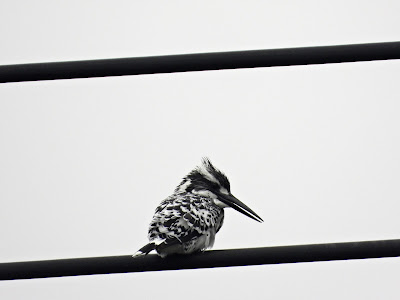



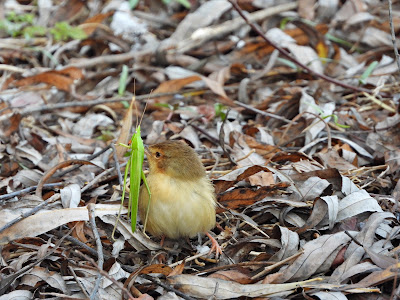
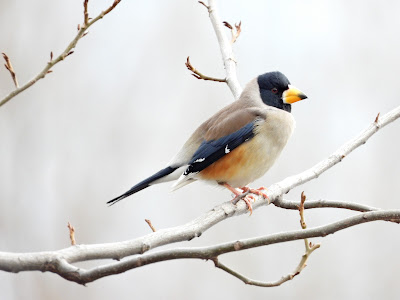
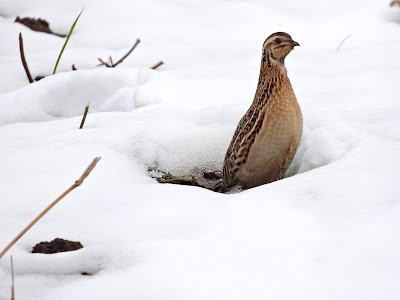



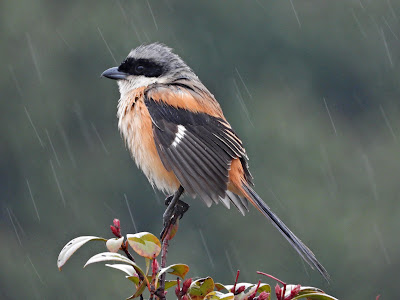

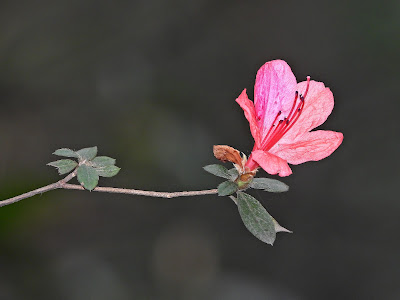
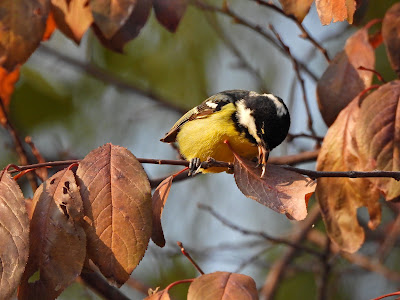




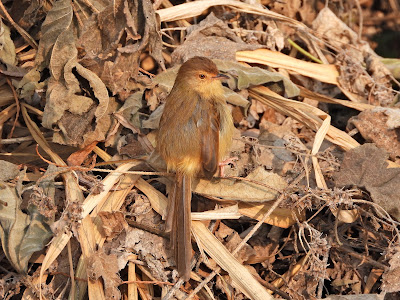




.jpg)



